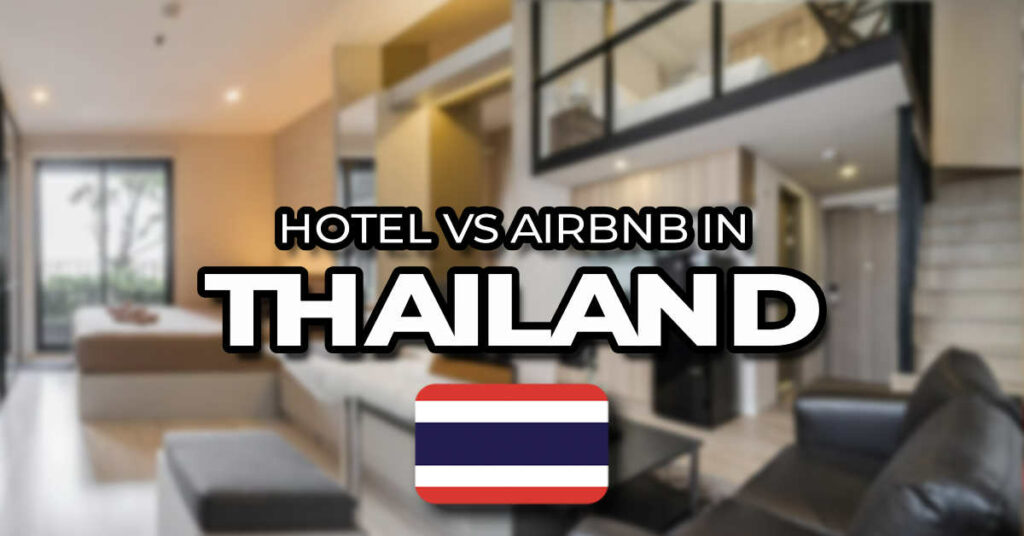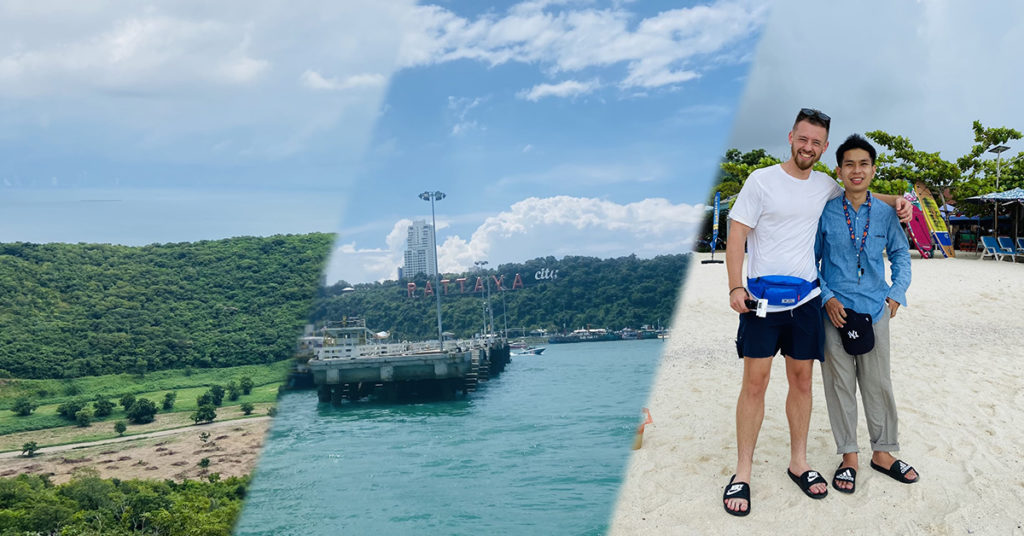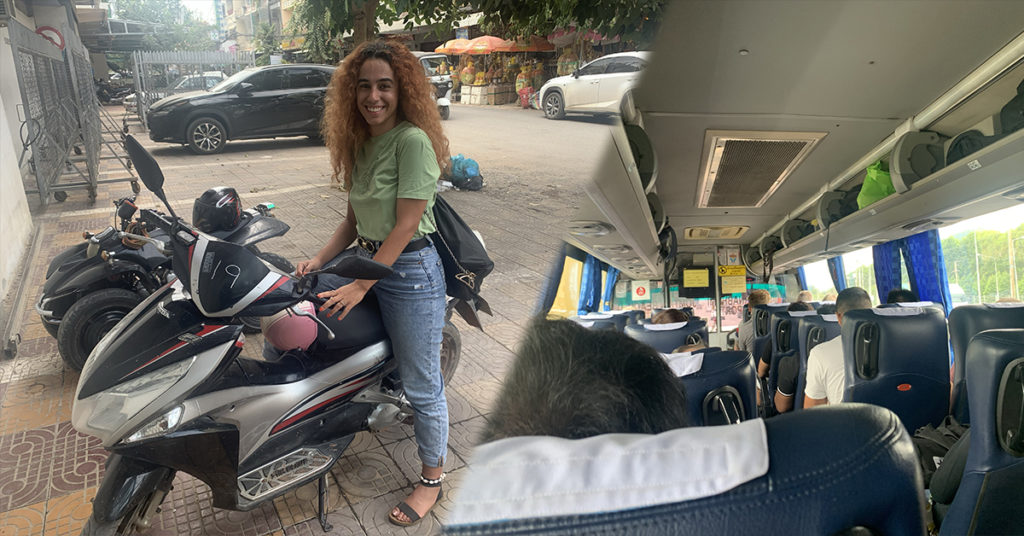So you’re deciding between staying in Hotels or Airbnb in Thailand? You’re in the right place. After spending 4 months traveling all over Thailand using both Hotels, Guest Houses & Airbnbs I’ve experienced it all. Putting it shortly, Airbnb is best for long-term stays and Hotels are best for short-term stays. Why? Well there’s actually a little legal problem with Airbnb in Thailand that could get you a fine (explained later)! By the end of this article, you’ll know which is the right choice for your journey and how to stay within the interesting laws of Thailand and avoid any fines or trouble!
Please note that in this article I share the facts along with opinions which are my own. I am not instructing you to break the law. If you do so that is on you.
Video of hotel room 3x the price of Airbnb ($68/night) but similar quality (slightly more luxurious)
Video of Airbnb $24/night (slightly less luxurious but similar utilities)
Airbnb vs Hotels in Thailand: Which is Better? And How Booking One Could Get You A Massive Fine!
To put it shortly Airbnb is great for anything over a stay of 30 days. Otherwise, Airbnb is technically illegal, under The Hotel Act of 2004 and you could be fined for staying or abruptly kicked out of your accommodation. Hotels are much better for short-term stays as they don’t have the same issues, provide seamless check-ins compared with Airbnb, and offer you a very comfortable stay with housekeeping etc.
So… stay in Airbnb for longer than 30 days; stay in hotels for anything less.
Airbnb Pros
- Much cheaper to rent and generally larger spaces
- Include kitchen equipment and utilities such as washing machines
- Can cook your own food and store your own food
- Commonly have gyms, coworking spaces & a pool to use
- Completely private area, no housekeeping or any cleaning
- Often convenience shops below the condominium unit such as 7/11, maxvalu etc. great for shopping for food
- Garage for parking
- Beautiful rooftop areas
- Great WiFi included
Hotel Pros
- Check-in is smooth and there is usually someone there to help you 24/7
- Staff are there to help you with any problem
- Housekeeping comes every day and provides fresh sheets etc.
- Not illegal for short-term stays
- Include room service
Airbnb Cons
- Sketchy check-in process (explained further below)
- Technically illegal to rent for less than 30 days (usually only the owner is charged)
- Police raids have happened in the past although rare
- You might be kicked out of the accommodation if staying less than 30 days
- Have to take out the rubbish and clean sheets etc (no housekeeping)
Hotel Cons
- Quite expensive compared, especially for long-term rent
- Don’t always have a pool/gym included
- Can’t cook and store your own food
- Not completely private (housekeeping every day)
- WiFi is not always great
- Doesn’t have a lot of space or multiple rooms
So why might you get a fine if you stay in an Airbnb Rental?
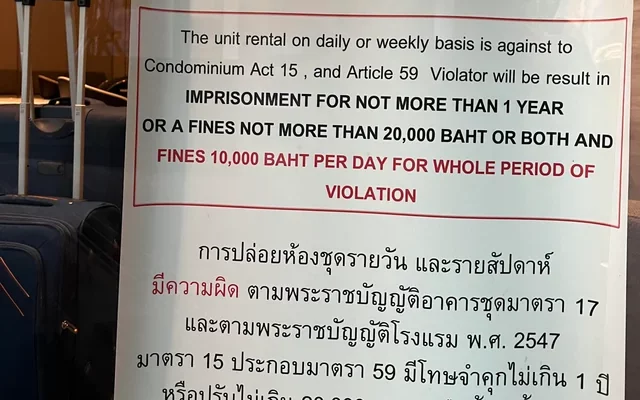
When it comes to the legality of Airbnb in Thailand it’s not black & white. Technically Airbnb is legal for stays over 30 days, but is illegal for anything under. The legislation that makes it illegal is The Hotel Act of 2004, whereby hotels need a license for travelers staying less than 30 days. Most Airbnb hosts do not have this license and they cannot usually get it in residential accommodation.
You’ll see signs for this plastered all around the Airbnb if you stay there. These tell you it’s illegal and you may get a fine. However, this is 99% of the time directed at the owner of the accommodation.
Despite its illegality, people still rent and there are many Airbnb’s available. I have personally stayed in Airbnbs before that are still operating and most likely renting for less than 30 days. Why? Well, the enforcement of this law has been inconsistent, and many do not get prosecuted.
However, there have been instances of police raids on Airbnb properties, but these are relatively rare, and tourists are rarely impacted with fines or imprisonment. They will commonly be asked to vacate the property though.
What Makes The Check-in Process for Airbnb Strange?
To check in at an Airbnb in Thailand, you have to wait outside a shop nearby and wait for a Grab delivery driver to give you a package that will contain the key. After this, someone will meet you outside the shop to make it look like you’re a friend staying and they are showing you around. This person will take you to your room and guide you through how to use everything during your stay.
During this walk, they will explain that you can use the front entrance, but only when the door is open as there is a fingerprint scanner they obviously don’t want you using in the case of investigation.

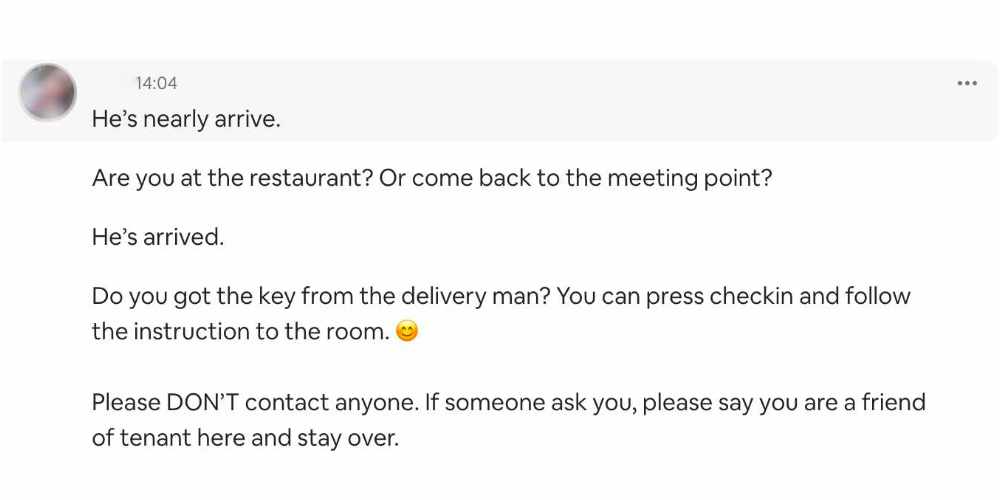
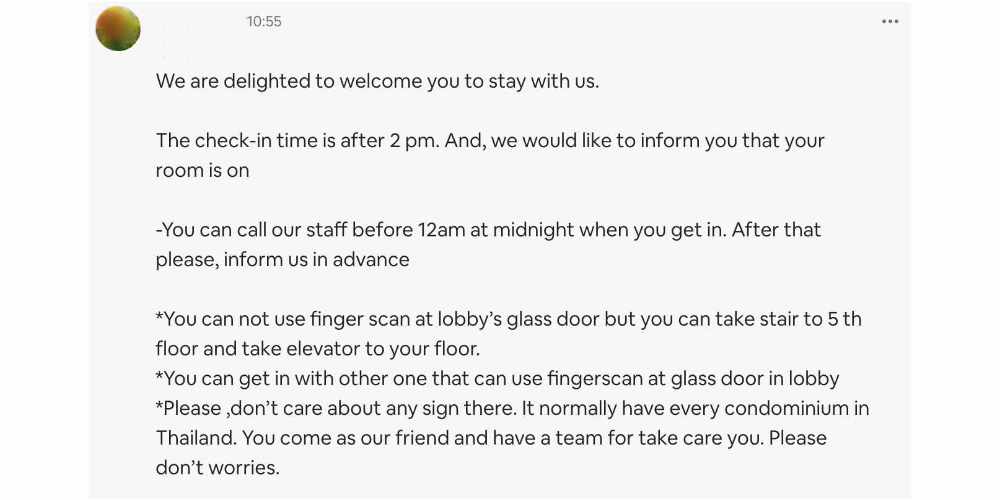
So how do you get in?
You either wait for someone to open the lobby door; or in the case this door is closed; owners will tell you to use the back route (usually fire doors). This commonly involves walking through the car park and going through a few specific doors and walking a couple of flights of stairs. The owner will show you this route and it’s up to you to remember.
Usually, they’ll also share instructions on Airbnb through photos, but these aren’t that straightforward.
In contrast to hotels, this process is full of rules and weird processes in place to prevent the owner from being reported to the Police and being fined/getting jail time for renting out residential accommodation without a license. It’s annoying for a tourist to navigate these, but sometimes it’s worth it for the extras you get with an Airbnb like fantastic WiFi speeds, coworking areas, gym, pool, kitchen etc. etc.
Below is an example of the Airbnb we stayed in when we first arrived in Thailand and didn’t know about the law. As you can see it’s much better than your usual hotel room, and was a lot less expensive! Compared with $14/night for this room to $30+ for something nowhere near as good, you can see why people choose to stay in Airbnb instead.
This is the gym provided and me doing some crazy exercises for our article on how to stay fit on vacation!
Will I Get in Trouble if I Use Airbnb in Thailand?
Tourists commonly don’t get in trouble for staying in Airbnbs. However there have been Police raids in the past (although rare). These usually target the owner of the property as they know what they’re doing is illegal. It’s a very rare case to see a tourist charged for staying in an Airbnb and there have been no reports of it yet. You will be asked to leave if a resident reports you.
I have personally stayed in 4 Airbnbs during my trips to Thailand for less than stays of 30 days. During these trips I never encountered any problems with the Police etc. and saw many other travelers doing the same. As long as you’re not a d*ck, loud or rude, most people will not care to report you.
Do not treat it as a hotel, treat it as if you are living there among other people and act as if you would if it was your own flat, you’ll be fine!
Housekeeping & Ease of Stay
To be honest with you this is the only front that the hotels win on. The ease of checking in and the fact you get daily housekeeping as well as staff there to help you with anything is so much nicer to have especially if you’re on a holiday and you want to relax. This is often worth the extra cost for many people on holiday as many will go out to eat every day and not worry about washing clothes or doing the usual daily mundane things in life.
Also, the ease of mind provided that you won’t get kicked out at any moment for staying in something that is technically illegal (only under 30-day stays) helps you switch your mind off and enjoy your holiday.
Personally, I don’t think it’s worth the extra cost per night, but that’s just my opinion.
Costs
Here are the costs of a Hotel vs Airbnb in Thailand:
- Airbnb Apartment in Bang Sue – $24/night for 14 nights
- Serviced Hotel Apartment on Silom Road – $67.63/night 3 nights
To get a serviced apartment of a similar standard to one on Airbnb we had to pay almost 3x the price! This stay was slightly more luxurious than the Airbnb we stayed in at first, but if we were to look on Airbnb we could have got a similar stay if not a better stay for a much lower price.
Airbnbs cost a lot less to stay in and provide more benefits over hotels and serviced apartments, but if you are reported then you could be ejected from the property, which is not a small thing to be ignored!
Important to note: if you stay longer than 30 days in an Airbnb you will be required to pay extra for electricity and water (due to the large discounts added by Airbnb). The owner will tell you what the charge is. It is usually not that much and is still much more affordable than a hotel.
The Airbnb we stayed in:
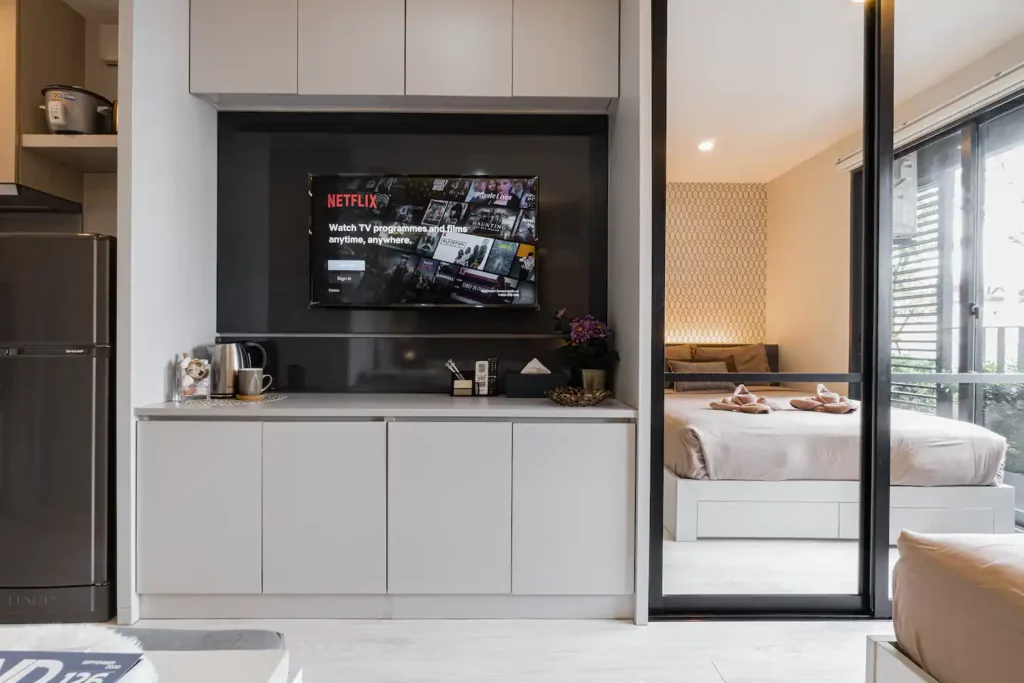
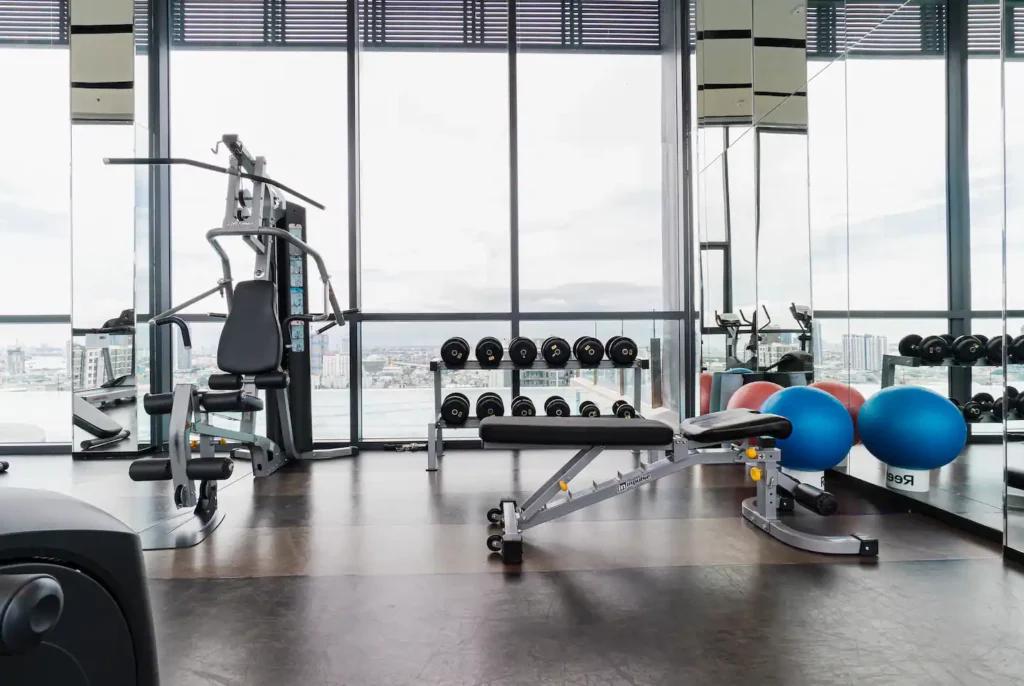
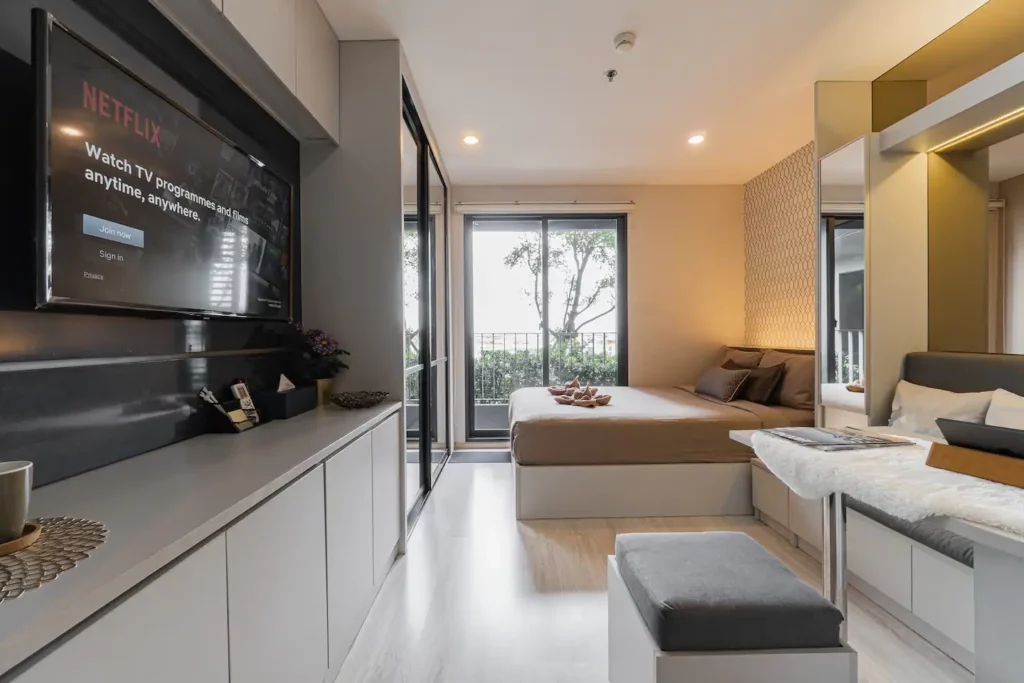
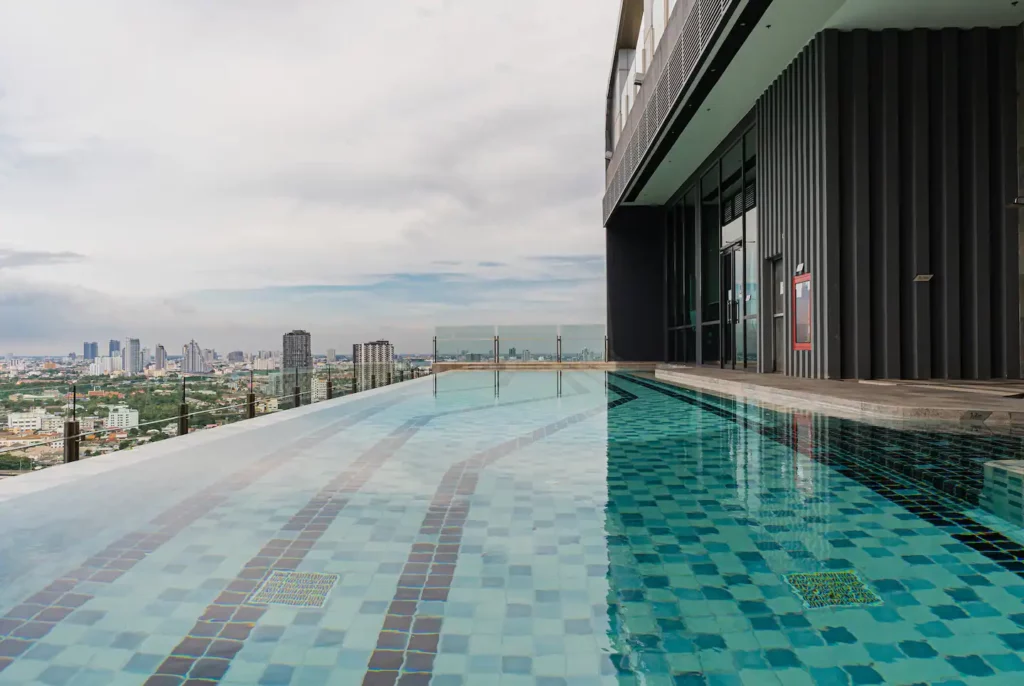
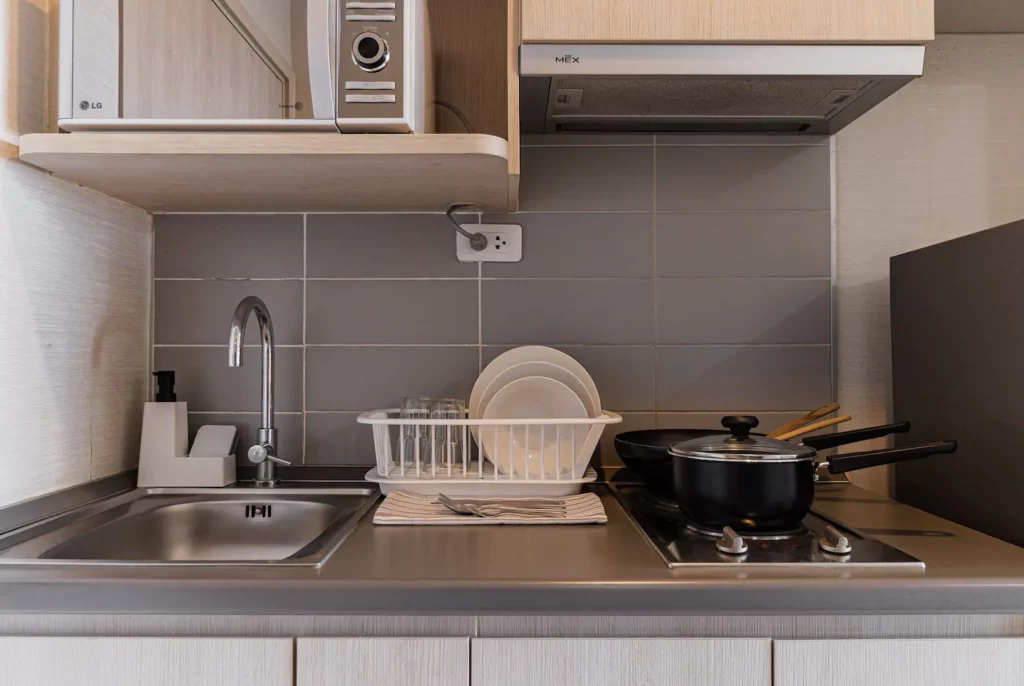
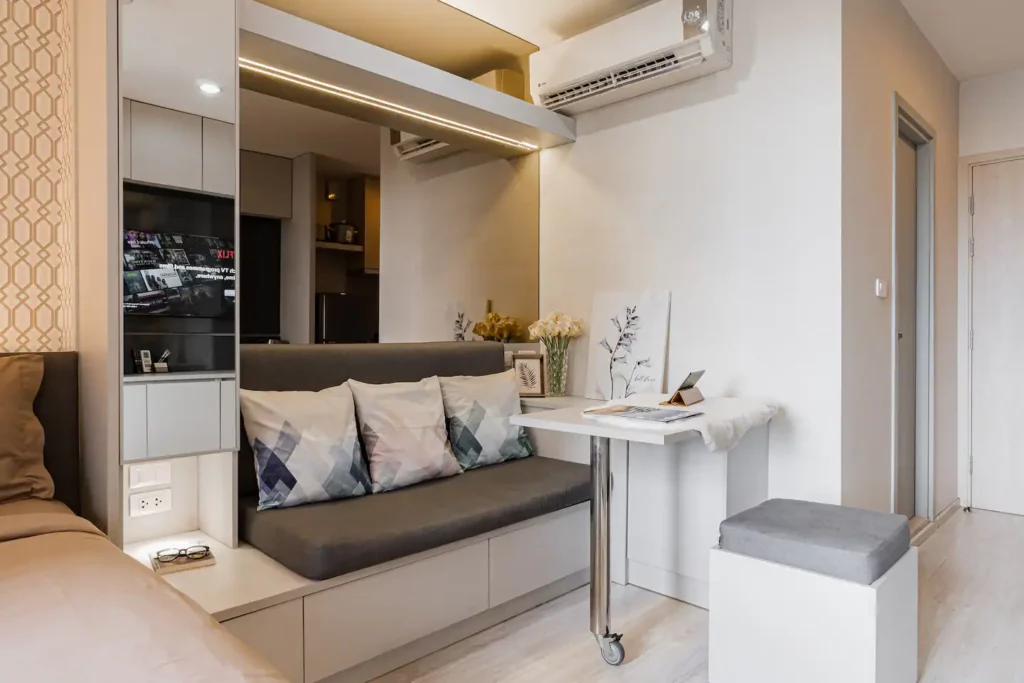
Vs the hotel we stayed in:
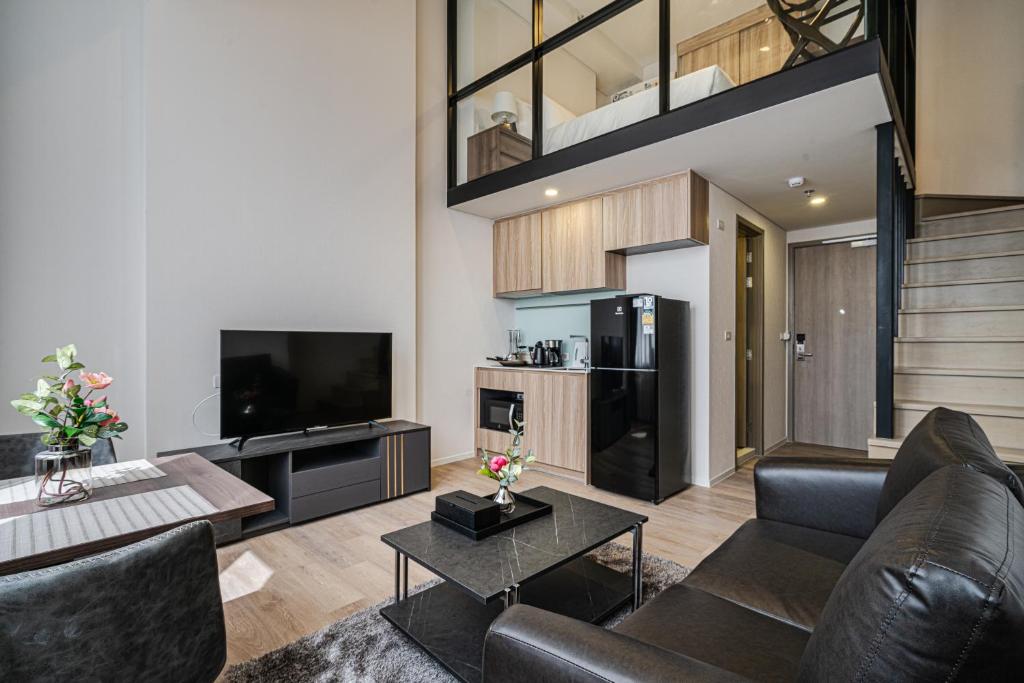
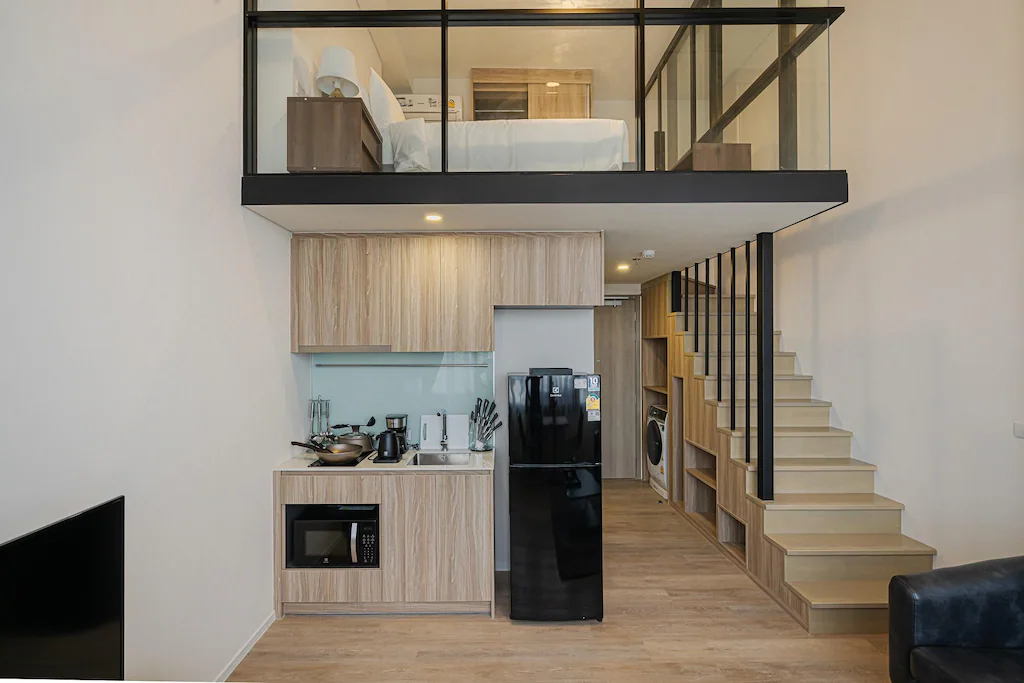
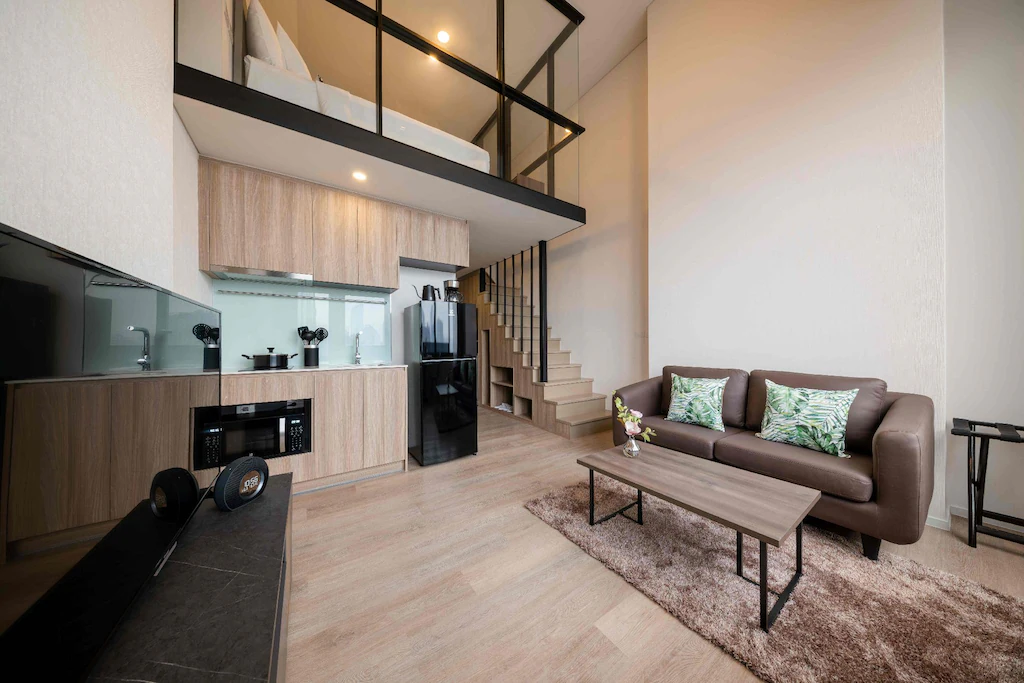
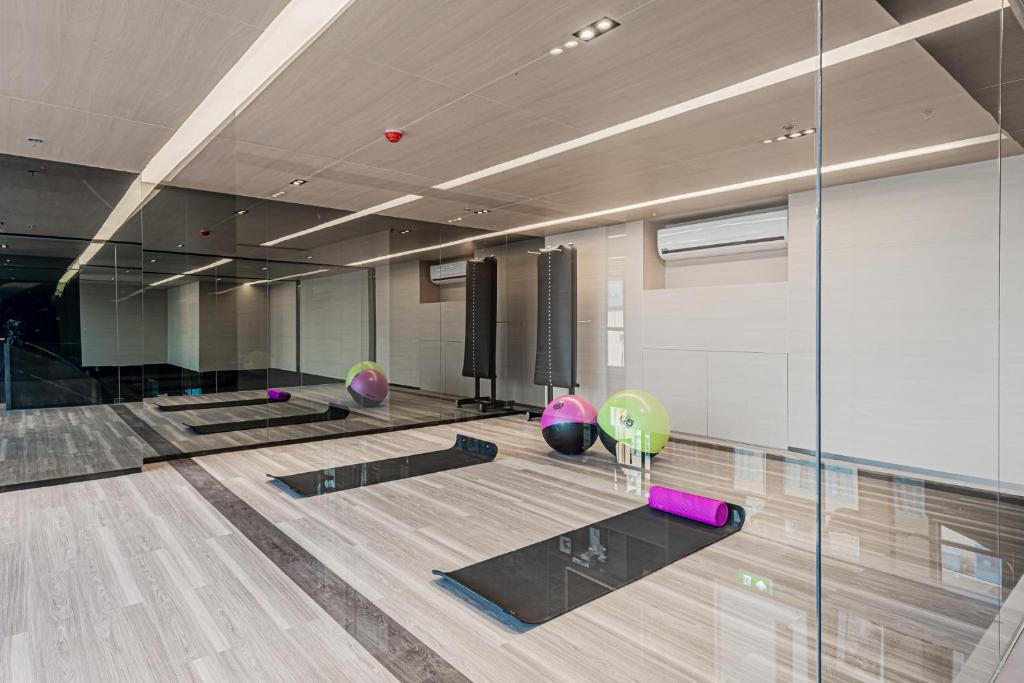
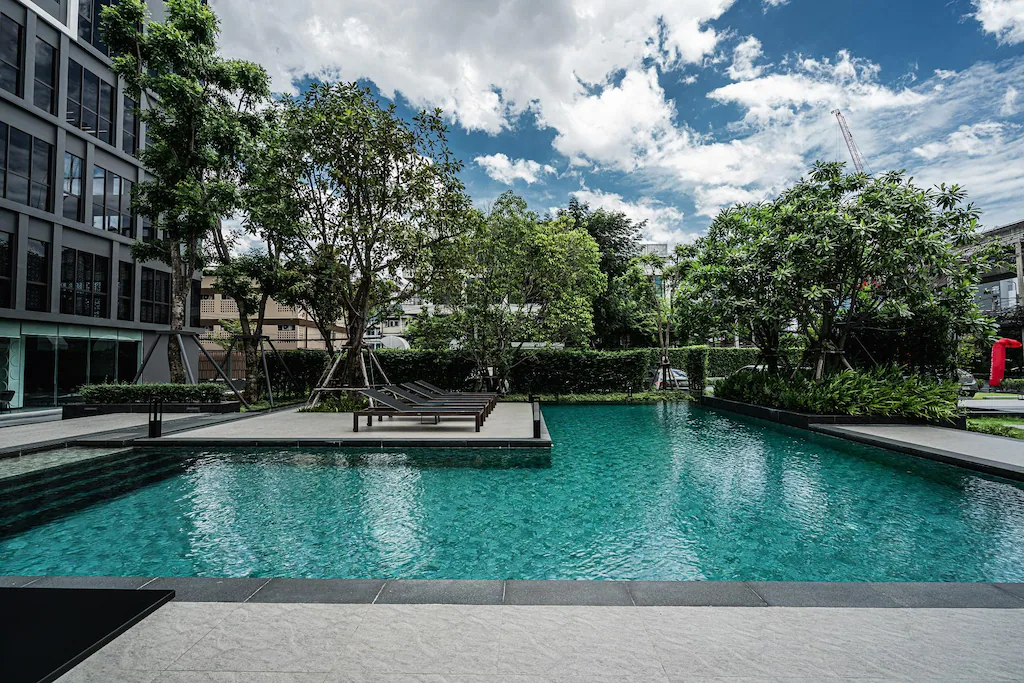
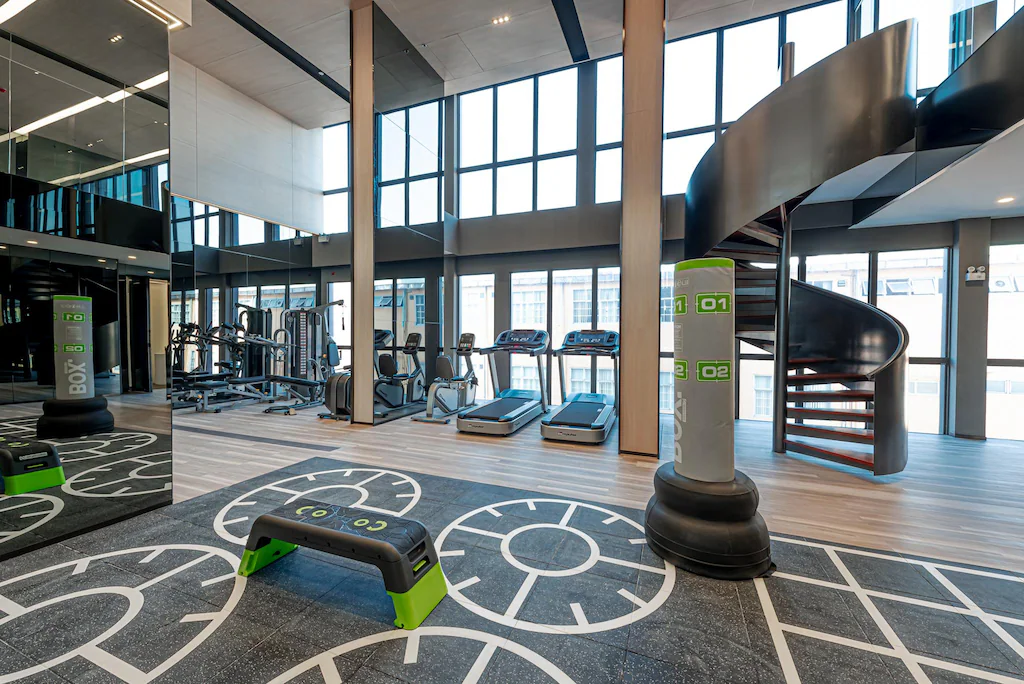
Hotel serviced apartment room
What a bidet eh? Automatic robot bum-cleaning action!
So Which Should I Choose – Hotel or Airbnb in Thailand?
Airbnbs are much better value for money and if you’re staying over 30 days you should get an Airbnb. Hotels provide a greater ease of mind but are more expensive while providing better housekeeping services and staff to make your stay easier. The risk with Airbnb is if you are reported you might be asked to leave the property as it is technically illegal for owners to rent the room out.
Different options are better for different travel styles, length of stay etc.
Stay in an Airbnb if:
- You are staying for longer than 30 days
- You are trying to save money on accomodation
- You want kitchen equipment, pool and a gym
- You are willing to wash your own sheets, take out rubbish etc.
- You are not going out and getting hopelessly drunk/high
- You are willing to treat the place like your own home
Stay in a Hotel if:
- You want housekeeping and cleaning services
- You want ease of mind when it comes to legality
- You are going to get hopelessly drunk and potentially annoy residents
- You are here for less than 30 days
What Other Travelers Are Saying About Hotel vs Airbnb Thailand
When looking on various forums the general consensus is that, while it’s a risk, it’s cheaper to stay in an Airbnb and you commonly get more value for your money, but others say that it has recently gone downhill and prices are the same as serviced accommodation now (this is not the experience I’ve had Airbnb is much cheaper). There is a large risk of being ejected from the accommodation, although many report that this is rare.
As long as you are respectful, don’t make a noise and follow the rules of the Airbnb you are unlikely to get reported. If however you are loud, drunk or anything of the sort you of course higher your chances of getting reported by the residents to Police.
Many people additionally report on how annoying the check-in process is for Airbnb as well as the lack of service that you get. Some people say this is not worth saving the extra dollars per night, other people say it is.
There is additionally an ethical issue with this too, which is why I now personally choose to stay in hotels instead if I am staying less than 30 days. I did not know Airbnb was illegal before visiting Thailand the first time (which is when I stayed in Airbnbs) and the refund rules on Airbnb are annoying to navigate (you don’t get your money back instantly) so I chose to stay in the properties I had pre-booked, then stay in hotels after.
I would say the experience was slightly better in Airbnb for the price, but I wouldn’t recommend you choose Airbnb over Hotel after finding out it’s illegal
The Future Outlook Will Thailand Change The Law on Airbnb?
Looking ahead, the landscape of short-term rentals in Thailand is poised for potential change:
- Lobbying for Legal Changes: Airbnb has been actively engaging with the Thai government, advocating for modifications to the Hotel Act of 2004. This includes discussions on aligning policies with the global shift towards home-sharing models.
- Global Trends and Local Adaptations: The trend towards liberalizing short-term rental laws worldwide is evident, with many countries adjusting their regulations to accommodate new business realities. Thailand’s response to these global shifts, while gradual, suggests a possible future where Airbnb becomes a more accepted and regulated part of the tourism landscape.
- Impact on Local Communities: Airbnb’s expansion could significantly benefit lesser-known regions and local communities in Thailand, offering travelers unique experiences beyond the traditional tourist hotspots.
I’ve Already Rented an Airbnb in Thailand – What Can I Do?
If you’ve already rented an Airbnb in Thailand you have two options:
- Risk it and stay in them
- Contact Airbnb for a refund
Airbnb does refund you in these situations, however you don’t get your refund for 48 hours, so if you don’t have enough cash to book another place then this can be an issue. Additionally, you have to go through email support which is a bit of a nightmare.
I personally chose to stay in my pre-booked Airbnbs, but I do not recommend that you do the same and break the law. I was fine, but you could be unlucky.
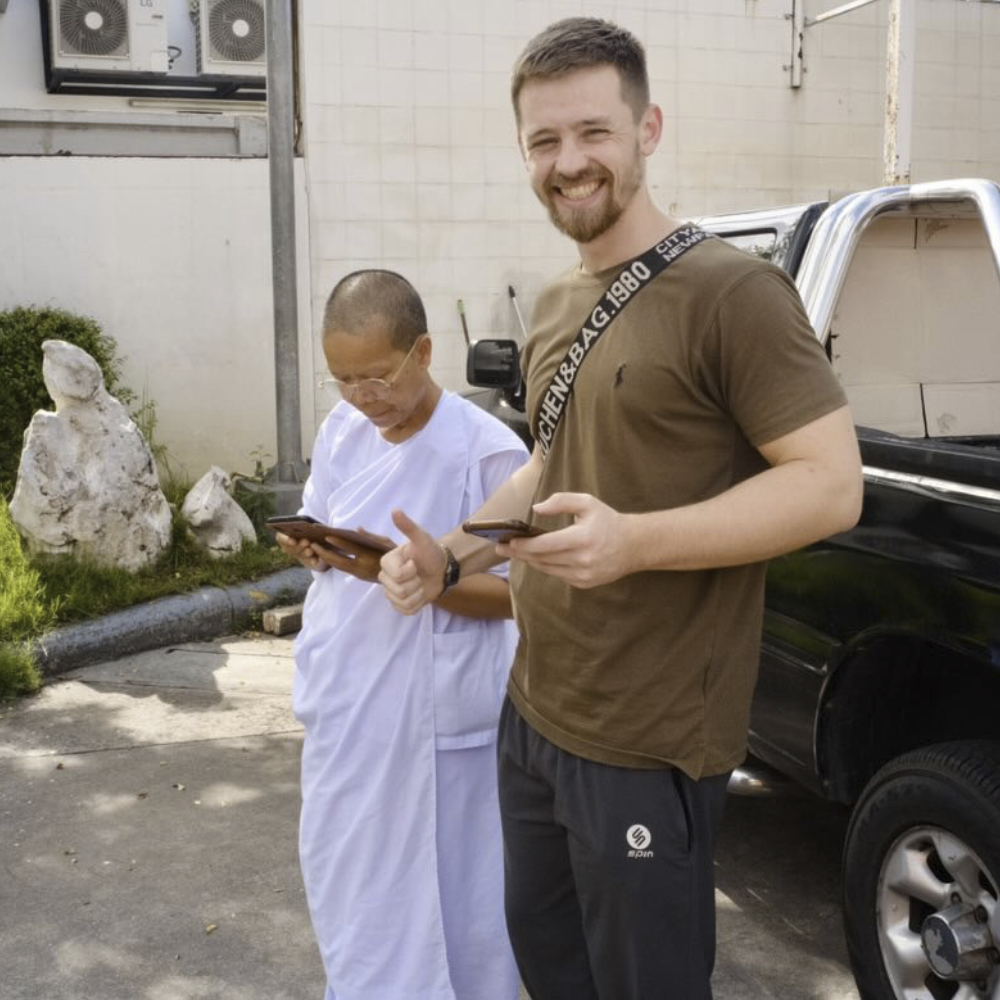
I’m Harry – and I was tired of the same old “10 best places I’ve never been but I’m writing about for some reason” blog posts. So… I’m a young traveller on a mission to travel the world and share my true, unfiltered experience, including all the gristly details. From packing my life into one bag for a year, to traveling Vietnam by motorbike, to sorting out Visas for specific countries – I’ve done it all, am doing it all and only give my advice on things I have done – not regurgitated cr*p from another source *cough* most publications *cough*. So bear with us! This project will take some time to grow, and will take a fair bit of money. But I’m determined to make it the single best source of information about traveling on the internet.
